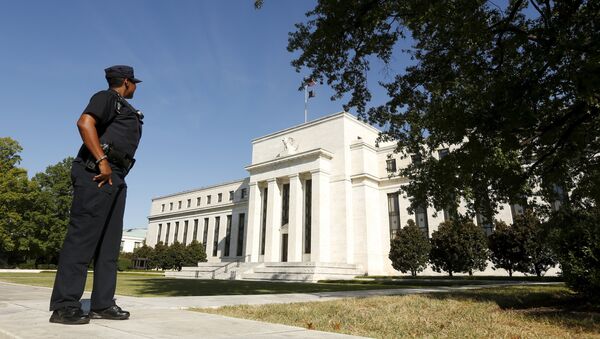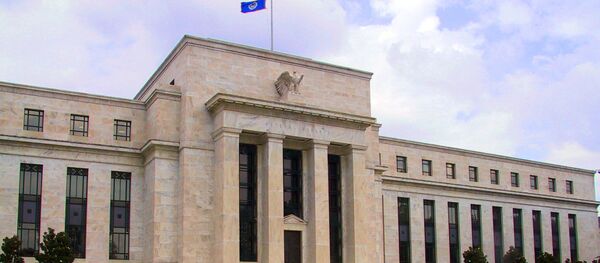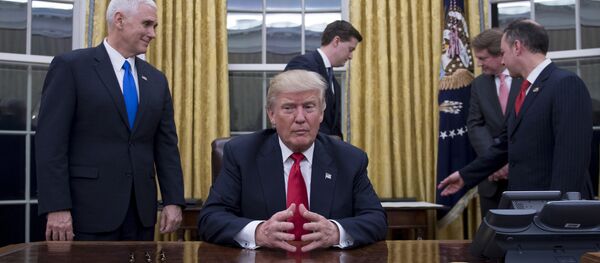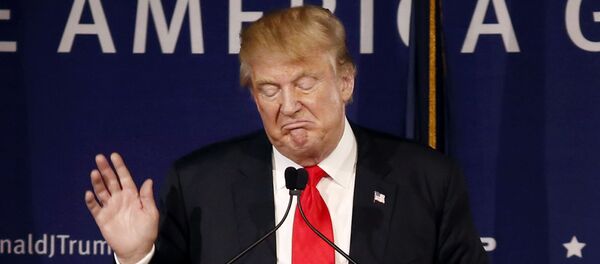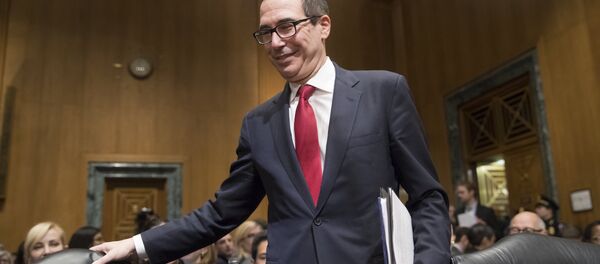US Treasury nominee Steven Mnuchin voiced his support for a higher standard of transparency in the Fed's actions, whilst House Republicans called for tougher governmental surveillance over the Fed policies.
The US central bank finds itself under the greatest pressure from the government for first time since the Kennedy administration, and this time around, the US corporate sector seems to be on the side of the White House.
The House Republican-proposed "Audit the Fed" Act seems to have gained traction in the now-Republican-controlled Senate, and with a Republican President in the White House, a central bank reform might result in a legislation that would prevent the Fed from excessively interfering in the market economy.
However, Steven Mnuchin, Donald Trump's pick for Treasury Secretary, seems to have a more cautious stance on the matter than Senator Rand Paul, one of the "Audit the Fed" Act's most fervent proponents.
"The Federal Reserve is organized with sufficient independence to conduct monetary policy and open market operations," Mnuchin said. "I endorse the increased transparency we have seen from the Federal Reserve Board over recent years."
On the trail of his presidential campaign last year, Donald Trump repeatedly attacked the Fed for being excessively politicized and playing along to the Democrat agenda of the ultra-affordable credit and the off-limits balance sheet expansion, resulting in huge amount of funds being squandered at the expense of the higher US national debt.
"I used to think they were independent, and the Fed is obviously not independent. It's obviously not even close to being independent," Trump said in September.
"I would want to have a policy where we can begin to gently reduce debt, because right now it is not under control," Trump also said. "What happens if interest rates go up fairly substantially? What happens with all of the money we have and we are borrowing – you know what that does to our balance sheet? I mean that's a cost that's beyond belief."
House Republicans, on their part, believe quite the contrary – that the Fed's lack of accountability to the Congress allows the central bank do whatever it pleases.
"No institution holds more power over the future of the American economy and the value of our savings than the Federal Reserve," Senator Paul said, "yet Fed Chair Yellen refuses to be fully accountable to the people's representatives."
Now that Trump's cabinet is seeking ways to boost domestic production of goods and services, turn the deficit in foreign trade into a surplus, and reduce the excessive indebtedness, the issue of the Fed's balance sheet and money management is drawing greater attention from both the Congress and the White House.
Despite all the effort, however, with an independent entity such as the central bank, the US government's options are limited in changing the Fed's conduct significantly.
"I think it will be very tough to change very much" with the Fed, Paul Mortimer-Lee of BNP Paribas in New York said. Particularly so, given the US unemployment is low and inflation is subdued, meaning the Fed is doing its job well, at least, as indicated by the official numbers.
In his discussions with the Congress, Mnuchin abstained from giving out too much regarding his view of the future of the Federal Reserve. He only hinted that the Fed does not have constitutional independence, which might imply there is a possibility of a Fed reform after all. However, the system the Federal Reserve is, with its 12 regional banks, is quite rigid as private citizens from the personnel of these regional banks. This effectively balances the US government's influence on the Fed Board.
Trump, after all, favors Volcker-style 20-percent base borrowing costs, which he sees as the cornerstone for a more sustainable market economy. However, in its current position, the ultra-dovish Federal Reserve will likely fail to deliver on Trump's expectations of central bank assistance with his across-the-board economic reform. This makes a reform of the Fed itself almost a necessity on Trump's agenda.

